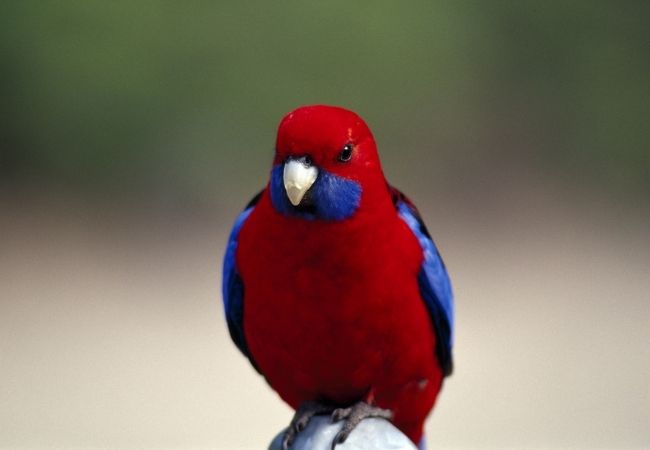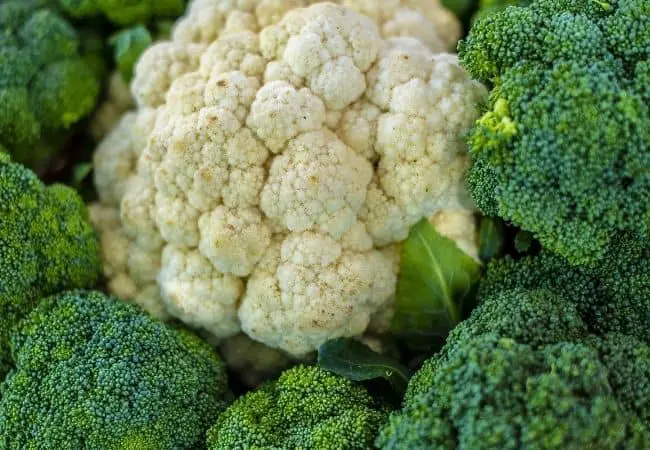Can Parrots Eat Cauliflower? Yes, indeed they can. Veggies add to 30% of a parrot’s diet. Healthy vegetables should be part of this bird’s diet, such as carrots, beetroot, broccoli, cabbage, zucchini, asparagus, potatoes, and of course, cauliflower.
Cauliflower is the paler version of its cousin, broccoli.
Now that you know that cauliflowers are great and healthy for your parrot to eat, let us give you more good reasons why you should include them in your pet’s diet. Along with cauliflower, this article will also familiarize you with other foods that are good for your bird friend.
Why Feed Cauliflower To Parrots
Most vets recommend feeding cauliflower to parrots because they curb obesity and lipomas.
Lipomas are fatty lumps that situate between the skin and muscle layer. On exposure to trauma, they can inflame and begin to grow very fast. Growing lipomas can cause ulcers on the skin are above. You can treat it with surgical removal. Or you could resort to giving a low-fat diet to your parrot, and cauliflower is just suitable for such a diet. A low-fat diet is important because obesity can aggravate the lipoma condition.
Other than that, here are the nutrition benefits of cauliflower. One cup or roughly 107 grams of cauliflower comes with the following composition of nutrients, vitamins, and minerals, as USDA claims.
- Energy – 27 calories
- Fat – 0.3 grams
- Carbohydrates – 5 grams
- Dietary Fiber – 2 grams
- Sugar – 2 grams
- Protein – 2 grams
- Sodium – 30 mg
- Phosphorous – 47 mg
- Vitamin C – 51.6 mg
- Vitamin K – 16.6 mcg
- Calcium – 24 mg
- Potassium – 320 mg
- Magnesium – 16 mg
- Vitamin B6 – 0.197 mcg
- Folate – 61 mcg
How To Feed Cauliflower To Parrots
To make it simple for your parrot to eat cauliflower, you may want to cut the floret into small bite-sized pieces. What’s amazing is that you can feed all parts of the cauliflower to your parrot- the stems, the head, and the leaves. When you cut fruits and veggies into tiny pieces, your parrot will take it as a fun game to grab the pieces. Long with cauliflower, you can do the same with kiwis, mangoes, apples, and melons.
Another important aspect of feeding your parrot cauliflower is to serve fresh. If there is any left-over that your bird could not finish eating, make sure you remove those to avoid staling. Steamed and raw cauliflowers are the healthiest options, whereas grilled cauliflower will strip off nutrients and add calories.
That’s about the food. But do remember to keep clean water also for drinking. Try to give only fresh water and change at least two times a day or whenever you think it is needed. Birds can’t go for long without water; hence hydration is vital.
Risks With Parrots Eating Cauliflower
There isn’t much of a problem if you feed small and chewable pieces of cauliflower. But let’s not forget that 60% of a parrot’s diet ought to be pellets, 30% from vegetables and the remaining 10% should accommodate snacks such s seeds and nuts.
As we always say, and it’s only wise, that moderation is the answer. Whatever you feed should be in moderation and the same foes for cauliflowers too. The main issue with cauliflower is that it may cause gas formation in the case of overfeeding. There are complex carbs present in cauliflower that may take a longer time to break down than other vegetables. And it may cause bloating and gas making it uncomfortable for your bird.
So logically, we can say that cauliflower is nutritious, no doubt. But it should not account for the primary diet of your parrot. If you feed mainly cauliflower, you may deprive your parrot of the necessary nutrients needed for its vibrant and energetic health.
Foods Parrots Should Not Eat
While it is essential to know which foods are safe for parrots, it is also crucial to learn which foods are toxic. They are,
- Chocolate
- Garlic
- Honey
- Alcohol
- Candy
- Caffeine
- Rhubarb
Besides the above, always choose foods that are not salted or seasoned with added flavors. Sugar-free food items are a complete no-no because they have xylitol which can be highly toxic for parrots.
For instance, peanut butter is a nutritious snack for parrots as long s it doesn’t contain xylitol or added sugar and salt. Also, the high-fat content in peanut butter can cause obesity. Thus only feed in moderation.

If you are feeding nuts, they are great too as a snack. But again, pick those which are not salted or have added flavors and seasoning. Salt can disrupt the balance of electrolytes and fluids in your parrot’s body. Dehydration and kidney failure may also arise if your little birdie eats salted walnuts. The worst event to occur could be death.
Why Should Parrots Not Eat Too Much
Just because parrots love to eat cauliflowers doesn’t mean you’d keep feeding them. Excessive eating may lead to obesity, and they can develop diabetes from it. When diabetic, they will want to eat more out of lethargy. That’s why it is crucial to watch their diet in time to avoid this event.
You may also read Can Parrots Eat Cucumber?
A parrot should typically eat about 35-40 grams of meal a day, comprising 60% of pellets, 30% of veggies, and 10% of snacks. Remember two words when feeding your little bird fiend- balance and moderation.
Other Vegetables That Parrots Enjoy Eating
Other than cauliflower, there is a range of healthy vegetables that your parrot would love savoring. They are cabbage, broccoli, leafy greens, zucchini, and asparagus, to name a few. These foods can remind your bird friend of its natural habitat—birds in the wild hunt for vegetables to satiate their hunger.
Just make sure when you feed these vegetables, they are fresh, and you cut them into small pieces for easy chewing. And of course, in moderation, because that’s the most important thing to keep in mind with a parrot’s diet.
Conclusion
From what we have gathered from the article, yes, cauliflowers are safe and healthy for parrots. Just remember the magic words, which are ‘moderation’ and ‘fresh.’ Also, do not make it their primary diet because that would mean overfeeding, leading to bloating.
